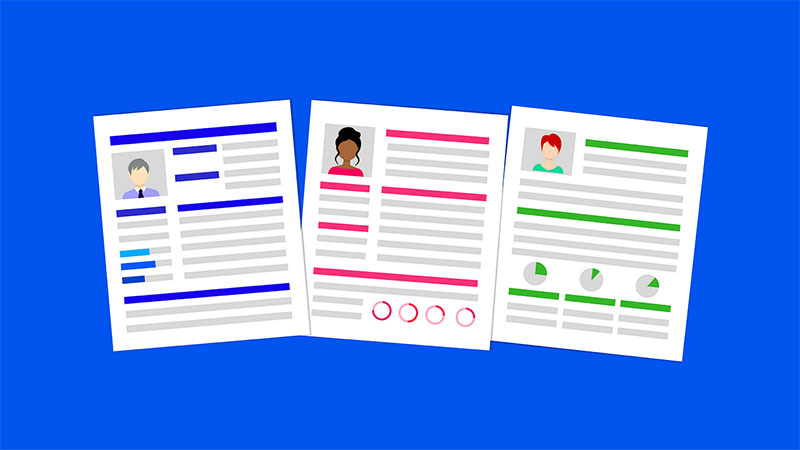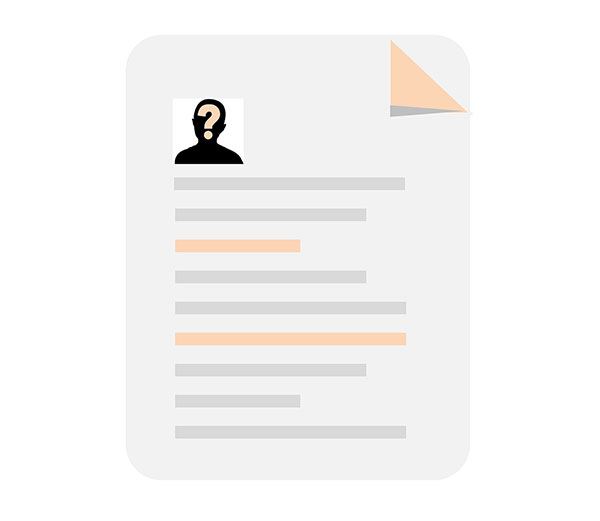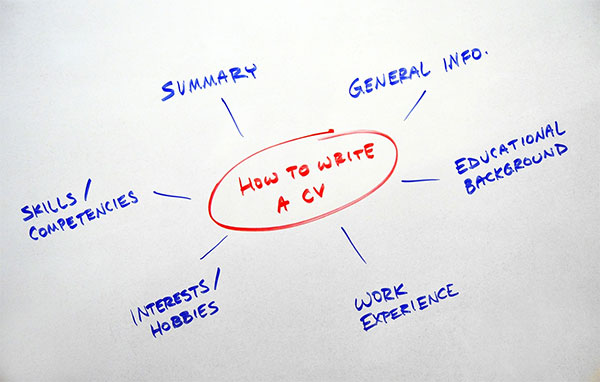Hiring managers see dozens of resumes every day. When it is time to fill a position the number of applicants can escalate beyond the amount of time that they have in a day.
After a while, all the details will seem like a blur. They become disinterested and simply do a courtesy check for certain keywords that stand out to them. And because of this strong possibility of being overlooked, it is highly important that you not submit an extensively long resume.
That begs the question “How long should a resume be?”
Well, today we will review the facts and present the best solution.
Learning More about a Resume
Let us start with the foundational points. Here will we highlight the purpose of a resume and what to include.
What is a Resume?
Based on the advice of the career experts at Seek, “A resume or CV is a document that summarizes your work experience, education, skills and achievements for a prospective employer. It is usually required as part of a job application, and is considered essential information in order for an employer to assess whether an applicant would be a suitable candidate for a first round interview.”
The Purpose of a Resume
Consider yourself a coveted product. You were built to complete specific tasks or functions. For best use, you must be handled a certain way and allowed to do those specific functions. If not, then you would be useless and possibly discarded.
Consider yourself a coveted product. You were built to complete specific tasks or functions. For best use, you must be handled a certain way and allowed to do those specific functions. If not, then you would be useless and possibly discarded.
Parts of a Resume Document
Generally, a resume includes several different sets of information. These include your personal details, career objective, education, work experience, references, special awards, certifications or special projects.
In addition, you should also highlight skills or abilities that are relevant to the job position.
Structure of a Resume
You want the hiring manager to peruse the document with ease and not be frustrated by how the information is presented. As such, you should use short paragraphs, headers and bullet points to break up the information suitably.
It should be neat and try to use more than two types of fonts. The general standard for your font is Times Romans, size 12.
Sentences must be conveyed in the first spelling and your spelling and grammar must be immaculate.
Information to Eliminate from a Resume
While you want to be open and honest with an interviewer about who you are, there are several bits of information that should never be incorporated on your CV.
This includes any information about your marital status, age and religion. It is also not necessary to incorporate every tiny detail of every job that you have had.
And finally, do not write on your resume your past, present or future salary expectations.
The Outdated Model
A one-page caveat of all you have accomplished during your career is simply unrealistic and impractical. Unless you are a newbie to the working world and unless you have only worked in one job, trying to chuck all of your educational, career and other achievements into one page is simply not feasible.
Can you imagine a CIO or CFO trying to fit their skills and experience into a one pager? No! We certainly cannot. Realistically that should take anywhere upwards of three pages.
So, if you are a job seeker and you have heeded that outdated advice, chock it down the pit of forgetfulness and leave it in the 20th century!
There are a new set of rules for the 21st century and beyond.
Tips about Applying the Right Resume Length
Going forward, understand that you cannot give a ‘one size fits all’ kind of diagnosis for resumes. Why do we say this? Simple, there is no “one size category” to fit all professionals.
There are multiple categories of workers, who have followed different paths and accomplished various feats.
A seasoned professional cannot have the same resume stipulations as a graduate from college.
Resume Length for Entry-Level Employees
At this point in your career, you will probably have a minimal amount of career specific information. As such, it is advised that your resume be kept to a one pager.
That is the answer to the question “how long should a resume be” for entry level or college graduates.
In this concise presentation, you should include your career objectives and values as well as your educational experience. If you have any work experience, include that as well. It is also important that you add a skill category, which is ultimately backed up by your work or volunteer experience.
Resume Length for Mid-level Professionals
After you have been in the workforce for a few years, your career experience will expand. As such, it is expected that you will now have about two pages of relevant information.
Mid level professionals are those who have been working for about six to nine years.
This is not a rule written in cement, because there are workers who have this and more years under their belt. However, they have only worked at one location. So it is highly unlikely that they will surpass the one page resume.
Resume Length for Established Professionals
After being the mid level professional stage, your experience, expertise and education might increase. If it is relevant to the job that you are applying for, then it could spill over to more than two pages, easily. As such, strategically eliminate unnecessary job information, for that job posting.
Keep the page limit between two to four pages.
Work from oldest to the most recent position. So, if you have more than fifteen years experience try to have a category for “Earlier Career Experience.” In this section, only mention the job titles and employers’ names. In the general work experience area, include three to five relevant job positions.
Using these tips about resume length will keep your resume neat, on point and garner the attention of any hiring manager adequately.
What Do Other Experts Say About Resume Length?
It is good to have a general insight about what experts think. After all, they are reviewing tons of emails, resumes, CVs and cover letters on a daily basis. The following experts include hiring managers, interviewers and job sites.
Blue Sky Resume has a team of dedicated writers along with professional job search experts.
They recommend that job seekers remember “The bottom line when it comes to resume writing is that content is king. Do not worry about how long your resume is, or what resume structure you will use, until after you have written your first draft.
As you revise that first draft, omit unnecessary details but include all the information that will show hiring managers what makes you special. Always keep in mind the question: “will this piece of information make it more likely that I get an interview?’ If the answer is ‘yes’, leave it in. If the answer is ‘no’ delete it. Once that work is done, you are finally in a position to decide what length is appropriate given the story you need to tell.”
The Harvard Business Review also weighs in on the subject and recommends that you open strong. “The first 15-20 words of your resume are critically important because that’s how long you usually have a hiring manager’s attention … Start with a brief summary of your expertise. You will have the opportunity to expand on your experience further down in your resume and in your cover letter. For now, keep it short.”
Management Consulted collated the advice of 10 experts, to ascertain the top 10 tips on creating a killer resume.
One of the great tips they give is about focusing on the rule of three. This includes “3 major work experiences, 3 bullets on each one. … Only exception is your Primary job (the one experience, hopefully that is most recent, that you would like to highlight to any resume reviewer) – you should have more than 3 bullets. Have an “Education” section with 3 bullets. And so forth. This rule ensures you don’t include 8 bullets for each experience, which is a sure-fire way to signal that you don’t know what you’re doing and overwhelm the reviewer with unnecessary information.”
Customize Your Resume Adequately
Keep in mind the strategies identified above that answer ‘How long should a resume be?” This document is a significant component of your individual promotion crusade that will be the greatest asset in getting a job.
Depending on the job, it is not necessary that you list an episodic adaptation of your entire career experience. What is pertinent is that which can convince any hiring manager that you are well suited or capable for that position and will be an invaluable asset for their company.
Take some time to analyze your work history carefully. Think about contributions, projects, accomplishments and qualifications that will reflect your competence and knowledge.
This will assist you in getting rid of pointless bits of information, which will only serve to distract the hiring manager and make you a less desirable candidate. So pushing your resume beyond the recommended amount of pages will serve no purpose, but to put you at the bottom of the pile.
Make use of these recommendations and in no time, you will see the fruits of your labor!





